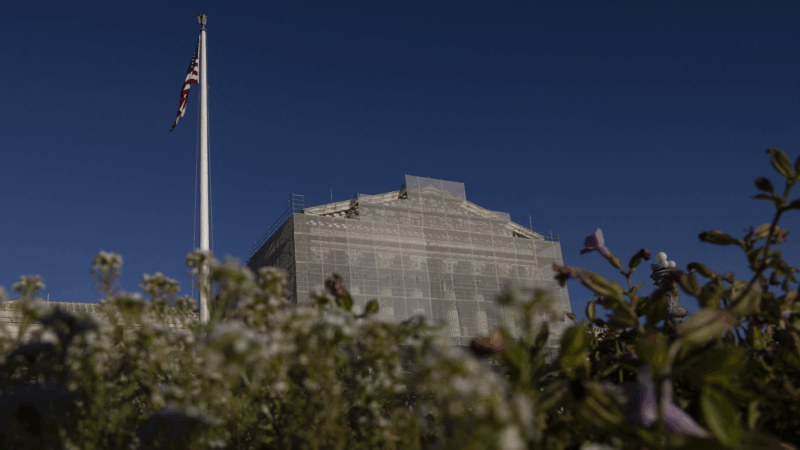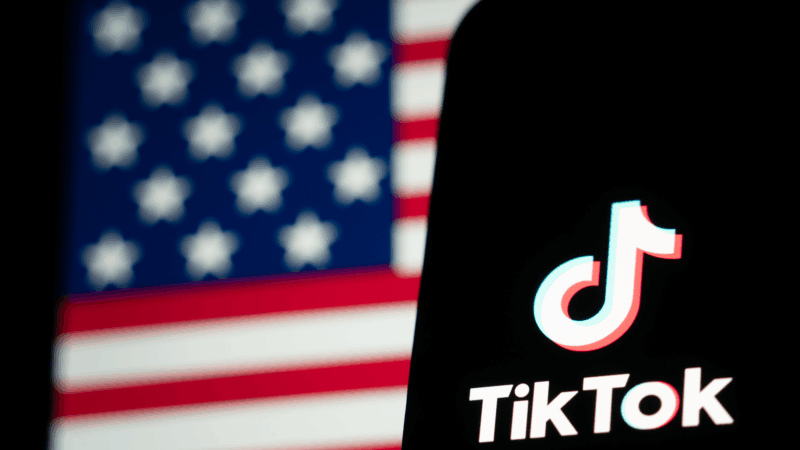At the Supreme Court, the case of the candidate who sued, even though he won
At the Supreme Court on Wednesday, conservative and liberal justices alike appeared to have little use for either side in a case that tests Illinois voting regulations. The often fractious justices teamed up to have a bit of fun at the expense of two seasoned advocates.
At issue was a suit by Rep. Michael Bost, R-Ill., challenging the constitutionality of an Illinois regulation that allows ballots mailed in by Election Day to be counted for up to 14 days after polls close. The lower courts ruled against Bost after finding that he failed to show he was individually harmed by the ballot regulation since he won.
Representing Bost, former U.S. Solicitor General Paul Clement contended that Bost was harmed by the mail-in ballots because they lowered his margin of victory and because he had to pay staffers during the two week vote count. But Chief Justice John Roberts and Justice Elena Kagan were not buying it. Bost’s arguments, Roberts said, boiled down to “Hi, I’m a candidate. These rules apply to me, and I’m suing.”
Justice Samuel Alito piled on, telling Bost’s lawyer, “It’s not clear to me why you couldn’t have done a lot better than you did in your complaint and alleged what I think a lot of people believe to be true, which is that loosening the rules for counting votes like this generally hurts Republican candidates, generally helps Democratic candidates.”
Justice Sonia Sotomayor followed up, pointing out the Bost brief “didn’t even track our legal language. You didn’t put in any facts.”
When the justices asked whether candidates with no real chance of winning an election should still automatically be able to sue, Clement replied with what was perhaps a tongue-in-cheek statement: “I’m going to stand with the 2% candidate. I stand in locked shoulder with the Socialist Workers Party” and other candidates who get very few votes.
“Those are interesting bedfellows you’re taking,” observed Sotomayor. Justice Neil Gorsuch seemed to agree, noting that in a prior Socialist Workers Party case, “Boy, they had zero chance of winning the election, zero chance.”
Next up to the lectern was Illinois Solicitor General Jane Notz, who started out by describing how, under Bost’s preferred rule, “Any self-declared candidate could challenge any election rule that they happen to have a policy disagreement with, even if that rule were entirely harmless.”
But she quickly ran into trouble, arguing that only candidates with a chance of winning the election can sue.
“What you’re sketching out for us is a potential disaster,” replied Chief Justice Roberts.
Alito asked if Notz was “seriously arguing that whether or not the allegations here are sufficient requires an analysis of the particular background and experience of the candidate who files the complaint?”
Gorsuch questioned whether there was “something unseemly about federal courts making prognostications about a candidate’s chance of success immediately before an election. Thoughts?”
And both Justices Brett Kavanaugh and Ketanji Brown Jackson seemed to be in agreement that Illinois was “walking away” from arguments laid out in its own brief. Of course, said Kavanaugh, “That’s your choice.”
Between Megan Moroney and Ella Langley, country women rule the charts
It's a big week for women in country music — and, it turns out, for women whose songs are favored by women in figure skating.
A Jan. 6 rioter pardoned by Trump was sentenced to life in prison for child sex abuse
Since receiving presidential pardons, dozens of former Capitol rioters have gotten into more legal trouble. In Florida, Andrew Paul Johnson was sentenced to life in prison for child sex abuse.
President Trump, Pam Bondi sued over sale of TikTok assets
The case, filed in a federal court in Washington, D.C., accuses the Trump administration of ignoring legislation designed to stop the spread of Chinese propaganda — and instead helping to broker a partial sale to businessmen close to Trump.
A rift between Spain and Trump widens over Spanish opposition to the Iran war
The Spanish government reiterated it would not let U.S. forces use two joint military bases in Spain as the U.S.-Israeli war in Iran escalates, widening a rift with the Trump administration.
Blackpink, modern K-pop’s trailblazing group, tries to find its way home
A new mini-album finds the world's biggest girl group in a tight spot: competing with its own legacy.
If you loved ‘Sinners,’ here’s what to watch next
So you loved best picture nominee Sinners. What should you watch next? We asked our audience to share their recommendations. They suggested Near Dark, The Wailing and other vampire horror films.






